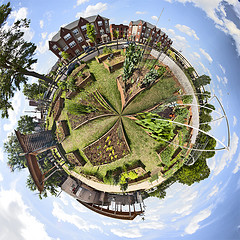- 2 reads

Using Stephen Covey’s principles to gain U.S. Energy Independence
One of the best-selling self-help books of all time is Stephen Covey’s 7 Habits of Highly Effective People. Covey studied hundreds of the world’s most successful people and came up with 7 common habits that all of these individuals had mastered.
The first three habits identified by Covey are focused on going from dependence to independence in your business and personal life. Ironically, these same habits can be used by the U.S. to go from energy dependence to energy independence. As you will see, there are many parallels between living an effective business life and reducing our use of non-renewable resources. Looking at each of the first three habits individually, we can learn the most effective ways to win the battle for energy independence.
- Habit 1: Be Proactive - Principles of Personal Choice
Covey talks about the differences between being reactive and proactive, obviously recommending the latter. There is no question that as a nation we are dependent on fossil fuels, so unfortunately all of our actions from here on will be considered reactionary. However, when planning the path to energy independence, we should begin to have more of a proactive mindset, where we are thinking more about the consequences of our actions.
- Habit 2: Begin with the End in Mind - Principles of Personal Vision The fight for energy independence can only be done with the collective effort of our whole nation. Therefore, not only do we all need a personal vision to reduce our use, but we also need a larger sense of direction from the leaders of our nation. President Obama and Secretary of Energy Steven Chu have made it very clear that the U.S. wants to be energy independent by 2050. By aligning our personal vision and missions with the greater power of the U.S. government, we can accelerate the process of weaning ourselves off of foreign oil.
- Habit 3: Put First Things First: Principles of Integrity & Execution: This principle is all about priority and putting ‘First Things First,’ which is the title of another best-selling book by Stephen Covey. To reduce our energy use we need to focus on the most important and effective methods. In general, that means first conserving and becoming energy efficient and then using renewable resources to take our dependence on fossil fuels to zero.

